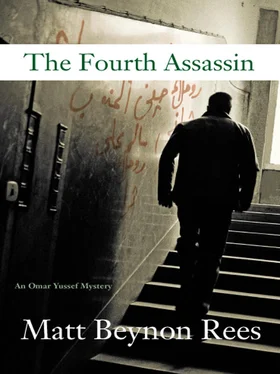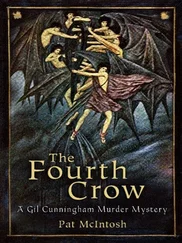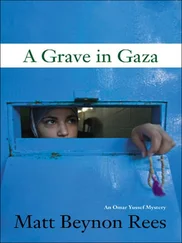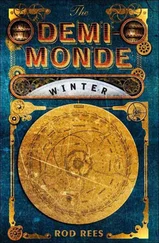Matt Rees - The Fourth Assassin
Здесь есть возможность читать онлайн «Matt Rees - The Fourth Assassin» весь текст электронной книги совершенно бесплатно (целиком полную версию без сокращений). В некоторых случаях можно слушать аудио, скачать через торрент в формате fb2 и присутствует краткое содержание. Жанр: Криминальный детектив, на английском языке. Описание произведения, (предисловие) а так же отзывы посетителей доступны на портале библиотеки ЛибКат.
- Название:The Fourth Assassin
- Автор:
- Жанр:
- Год:неизвестен
- ISBN:нет данных
- Рейтинг книги:3 / 5. Голосов: 1
-
Избранное:Добавить в избранное
- Отзывы:
-
Ваша оценка:
- 60
- 1
- 2
- 3
- 4
- 5
The Fourth Assassin: краткое содержание, описание и аннотация
Предлагаем к чтению аннотацию, описание, краткое содержание или предисловие (зависит от того, что написал сам автор книги «The Fourth Assassin»). Если вы не нашли необходимую информацию о книге — напишите в комментариях, мы постараемся отыскать её.
The Fourth Assassin — читать онлайн бесплатно полную книгу (весь текст) целиком
Ниже представлен текст книги, разбитый по страницам. Система сохранения места последней прочитанной страницы, позволяет с удобством читать онлайн бесплатно книгу «The Fourth Assassin», без необходимости каждый раз заново искать на чём Вы остановились. Поставьте закладку, и сможете в любой момент перейти на страницу, на которой закончили чтение.
Интервал:
Закладка:
She sucked in a breath to steady herself and entered the building. Omar Yussef kicked the snow off his loafers and followed.
Cheap couches fringed the reception room. Each seat was filled by an Arab waiting quietly for one of the counselors. They huddled in their heavy coats, the old men with their Astrakhan hats pulled low, silent and sleepy in the heat. A middle-aged woman turned a hostile glare on Omar Yussef. Her fat chins rubbed against her headscarf with each flexing of her jaw, chewing her gum. She’s already angry and defensive because she expects me to jump the queue, he thought. Even in America, where everyone’s polite, we Arabs can bring the unfairness of the Middle East with us.
“Peace be upon you,” he said.
The two dozen people around the edge of the room murmured their response: “Upon you, peace.”
He hurried across the gaudy floral carpet into the offices behind the reception counter. He found Rania in a small room papered with informational posters about the New York school system, basketball camp, and local businesses that offered satellite dishes with Middle Eastern stations. The desk was spread with pamphlets on health services and kindergartens. Her coat was draped over a filing cabinet, and she sat behind the desk in the same black smock and tight jeans he’d seen her wearing the day before. When she shuffled her mouse on its pad, the screen of her computer prickled into life.
Bitterness seemed to course through her movements and tremble beneath the tight set of her face. Omar Yussef wondered if it was more than the deaths of her father and her lover that ate at her, more than the loneliness of a girl with no family to console her. An unspoken anger underlay her grief, so that Omar Yussef found himself a little scared of her.
She clicked the mouse, and a photo expanded over the screen of the computer. Rania and Nizar were at a table in a restaurant which appeared to be part of a bigger public space. They were laughing for the camera with three smiling waitresses who wore white shirts and black ties. On the table, a short tube shot sparks from the center of a pink cake.
“Nizar made everyone love him, ustaz ,” Rania said. “This picture was taken on my birthday. He asked the waitresses to sing ‘Happy Birthday.’ He taught them the words in Arabic. They thought it was very funny.” She murmured the refrain, “ Sana hilweh, ya jamil. Sana hilweh, ya jamil .”
Now I know why she wanted to come to her office, Omar Yussef thought, as Rania clicked through more photos of Nizar on the computer. But I’ve never heard the birthday song sound so broken-hearted.
He tried to think of words to comfort her. He recalled the argument he had overheard between Rania and her father when he had returned to the cafe for his forgotten hat. The usual appeal to trust in Allah might not console a girl who had dreamed of Manhattan, he decided. “I’ve always had faith, my daughter,” he said softly. “Not in Islam, I must admit, but in human qualities. Of course, my faith in love and humanity and intelligence is tested by life in the Middle East. There I see events in which these qualities are entirely lacking. But the times when they go missing only make me believe more strongly that they must exist.”
Though Rania’s wide eyes moistened, they made no appeal to Omar Yussef. He could read her only as clearly as he might have made out a goldfish at the bottom of a fountain, distorted and out of proportion.
“I had an opportunity,” she said. “I seized it. Then it was destroyed. It’s gone forever. Knowing that it was real does no good, because the joy was in having it. Thinking of it or dreaming about it only makes its absence harder to bear.”
“Are you talking about Nizar?”
She slammed her hand down on the desk. “I’m talking about me.” Something sensuous and strong reached out from her gaze. It seemed to Omar Yussef that it touched his cheek and stopped his breath.
“‘We created the houris and made them virgins, living companions for those on the right side,’” he murmured. He grunted, only then realizing that he had spoken the words of the Koran aloud as he watched Rania’s face.
“That’s what Nizar used to call me-his houri ,” she said. “But they’re supposed to be ‘perfect companions,’ so I’m no houri, and Little Palestine is no Paradise.”
“You must allow yourself to mourn without being too hard on yourself.”
“I disappointed my father, and Ala too. I even disappointed Nizar. I’m a faithless woman, ustaz .”
“Faith in human qualities is like faith in Allah-”
“I don’t mean faithless in that way.”
“Faithless in love? Disappointment is a part of love. You will overcome-”
“I disappointed them.” She shook her head, and she hammered her palm onto the desk again. “But I didn’t disappoint myself . I went to Manhattan, and there I did things that are forbidden. I did them for myself. I didn’t want to wait until Paradise to be happy. I loved the things I did that were supposed to be barred to me, and I loved the man I did them with, though he also was forbidden to me. That’s what infuriates me. I live here among people who’d condemn me for the only things in my life that’ve been worthwhile.”
Omar Yussef shuddered. He saw in Rania’s dark eyes confusion, copulation, prohibited things he had renounced, and things not even known to him because they were so blameworthy. It was as if he found in one of her eyes the restrained life of a conservative Arab girl and in the other the world that pawed at her as she passed along the streets of Brooklyn-the advertisements displaying half-naked bodies, the crude language, and the disrespect. He wondered which eye had the better vision.
He watched her sob, her fingers knitted together before her eyes, her face lowered to the papers on the desk. He recognized the guilt in her then, visible on her pale flesh like a bruise. He knew he had to push her now, before the tears washed away the signs.
“What’s the Masjid al-Alamut?” he said.
She shrugged without looking up.
“The Alamut Mosque?” he repeated. “You’ve never heard of it? Your father didn’t pray there?”
Rania blew her nose on a tissue. “He didn’t pray, ustaz .” She dabbed at her eyes. No makeup had run, and Omar Yussef realized that the shining ebony of her long lashes was natural.
“What was Nizar like as a boy, ustaz ?” Her voice was suddenly clear and free from bitterness, like a child’s.
“I thought you said joy was a present happiness, not a future Paradise or a memory of a good time.”
She smiled through her tears, and Omar Yussef felt the touch of her gaze against his cheek again.
“Nizar was a bit of an operator, I remember,” he said, “but never malicious. He was one of those devilish types who surprises you by how caring he can be.”
“Was he religious, as a boy?”
“Not so much.” Omar Yussef was unsure if her curiosity was a diversion or a true desire to track the intimate traces of a lost love. “Did your father kill Nizar to protect your good name?”
“You think my father worried so much about my reputation? Just because he lost his temper about me being with a man, when you were at our cafe?” She shook her head. “He was all talk.”
“It’s true that drug dealers aren’t usually so concerned with the family image.”
Rania flinched, and her tears stopped. “My father wasn’t a bad man.” The girl blew her nose into another tissue. As she tossed it into the wastepaper basket, the end of her nose was briefly red. Omar Yussef watched its pallor return. If someone were to attack her with a knife as they had assaulted her father, this spot on her nose confirmed that she would bleed, perhaps until her veins emptied. He thought she had cried out all her capacity for pain, and with it had gone the healing that scabs over a wound.
Читать дальшеИнтервал:
Закладка:
Похожие книги на «The Fourth Assassin»
Представляем Вашему вниманию похожие книги на «The Fourth Assassin» списком для выбора. Мы отобрали схожую по названию и смыслу литературу в надежде предоставить читателям больше вариантов отыскать новые, интересные, ещё непрочитанные произведения.
Обсуждение, отзывы о книге «The Fourth Assassin» и просто собственные мнения читателей. Оставьте ваши комментарии, напишите, что Вы думаете о произведении, его смысле или главных героях. Укажите что конкретно понравилось, а что нет, и почему Вы так считаете.












